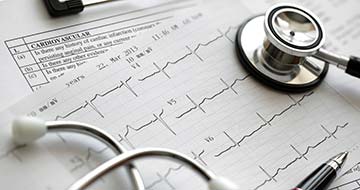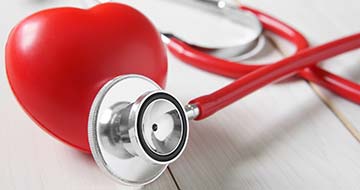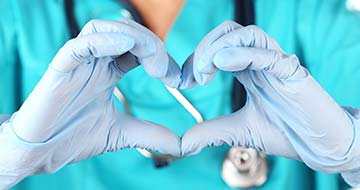Services
The first step in your care process is to understand the nature of your disease so that we can diagnose your condition.
Cardiac Electrophysiology, is the study of the electrical activities of the heart, specifically for the purposes of diag...
When our patients present with problems that may be cardiovascular in nature, we help determine the most likely diagnosi...
We help our patients improve blood flow in their arteries and veins by using very small tubes and specialized tools to d...
When the heart is functioning normally, the arteries are clear and open to allow for easy passage of blood through and o...
The highly trained surgeons and specialists at Biltmore diagnose and treat structural heart disease. We understand the n...
What is Heart Failure?
Although the term heart failure sounds frightening, this condition is usually treatable. Heart failure does not mean that the heart has stopped working. It means the heart is weakened and is unable to pump enough blood to meet the body’s needs.
Because the heart does not pump blood as well as it should, fluid may build up in the lungs and other parts of the body. In addition, organs such as the kidneys and the brain receive less blood. The most common symptoms of heart failure are shortness of breath, swelling of feet and legs, and fatigue/tiredness.
In most cases, heart failure is a chronic condition, which means it can be treated and managed, but it cannot be cured. In some cases, surgery may help. A doctor can prescribe medications to make the heart work more efficiently and help relieve symptoms. In addition, there are things a patient can do to help the heart, such as cutting down on salt, staying active, getting enough rest and keeping regular appointments with a doctor.
Most Common Causes of Heart Failure
There are many underlying causes of heart failure.
- Coronary heart disease – fatty deposits inside the coronary arteries that reduce blood flow to the heart
- Past heart attack
- High blood pressure
- Cardiomyopathy caused by weakened heart muscles and/or enlarged chambers
- Heart valve disease
- Diabetes
- Other conditions, including lung disease, kidney disease, rapid/irregular heart rhythms, obesity
Symptoms of Heart Failure
- Shortness of breath, especially when lying down
- Waking up at night unable to breathe
- Dry cough or wheezing
- Swelling of the feet and legs
- Swollen or tender abdomen, nausea, loss of appetite
- Fatigue/tiredness and weakness
- Palpitations (a feeling of pounding/thumping in chest or neck)
- Confusion, impaired memory and/or insomnia/sleeplessness
Diagnosing Heart Failure
To help diagnose the problem, a doctor may use one or more tests, including:
- Chest x-ray
- Electrocardiogram (ECG), a simple test that records the electrical activity of the heart
- Holter monitoring, a continuous recording of the heart rhythm, using a wearable device
- Echocardiogram, an ultrasound showing the heart and the pattern of blood flow
- Lab tests, such as blood count, urinalysis, blood chemistry, etc.
- Cardiac catheterization, in which a long thin tube is guided to the heart to measure the pressure inside the heart, study how well it is pumping and take images of the artery and chambers
Treatment of Heart Failure
When a patient has heart failure, a doctor may prescribe medications to improve the way the heart pumps and relieve the symptoms. Commonly prescribed heart failure medications include:
- ACE Inhibitors to make it easier for the heart to pump
- Beta blockers to help slow down the progression of the disease
- Digitalis to improve the heart’s pumping ability
- Diuretics to remove excess salt and fluid from the body
Other treatment options include:
- Implantable cardioverter defibrillator (ICD) an electronic heart stimulation device
- Cardiac resynchronization therapy (CRT), a unique type of pacemaker
- Left ventricular assist device (LVAD), an implanted heart pump device
- Heart transplant surgery
- Percutaneous Coronary Intervention (PCI), a cardiac catheter procedure to open up blocked arteries
- Coronary bypass surgery, to create ‘bypass’ around an arterial blockage
- Heart valve surgery, to repair or replace a defective heart valve
If you think you are having a heart attack, call 9-1-1 immediately for an ambulance to take you to the hospital. Do not try to drive yourself.







